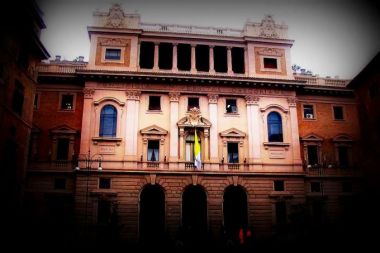Rome 'shadow council' speakers push for Church acceptance of contraception, gays

A meeting of a so-called "shadow council" in Rome last May 25 saw a number of Roman Catholic theologians from Europe giving their approval to contraception, homosexual acts, and Communion for those who are divorced and remarried, the Catholic News Agency (CNA) revealed.
Around 50 chosen representatives of the German, Swiss, and French bishops' conferences gathered at the Pontifical Gregorian University for a closed-door meeting of the council to discuss the church's stance on the biblical and theological status of the family.
Only a handful of journalists were invited to the event, but even then they were not allowed to interview the participants in the meeting since "confidentiality has been requested," the CNA report said.
But on July 17, the German bishops' conference decided to release the text of the meeting in several languages, but with the final speech from Cardinal Reinhard Marx of Munich and Freising omitted, CNA said.
According to the document, Fr. Alain Thomasset, who is a Belgian professor of moral theology in a Paris university, said he rejects the notion that any act can be "intrinsically evil" and challenged people in their condemnation "of artificial contraception, of sexual acts by the divorced and remarried and by homosexual couples."
He said people should "not be too quick to qualify a sexual or contraceptive act as intrinsically evil" because each person has a unique journey. Thomasset proposed that people no longer view sexual acts between remarried couples as "morally guilty," and that the use of contraceptive not be "morally wrong," just as long as the couple who use it are married and are still open to welcoming life.
At the same time, he proposed that the "subjective moral responsibility" of sexual acts between homosexuals in a stable and faithful relationship should be "diminished or eliminated."
"It's about helping people live ... in a path of growth toward the desirable," he explained.
Thomasset emphasised the primacy of conscience, saying that "the objective ethical references provided by the Church are just one item (essential, certainly, but not the only item) of moral discernment that must be operated within the personal conscience."
"How are we to take into account the difference between an act of adultery and sexual relations within a stable couple of remarried persons?" he asked.
Other speakers in the meeting voiced opinions that appeared in conformity with those spoken by Thomasset.











